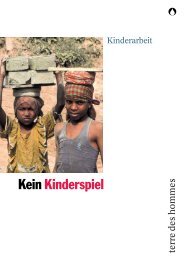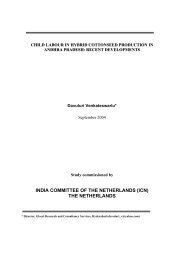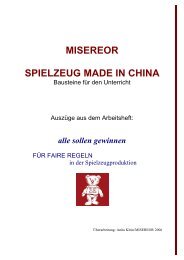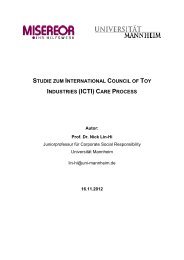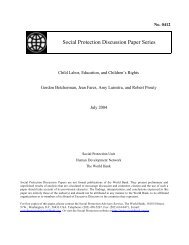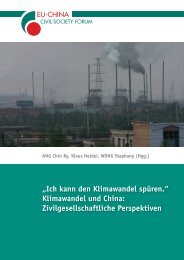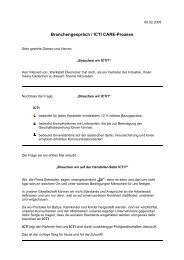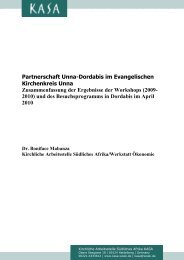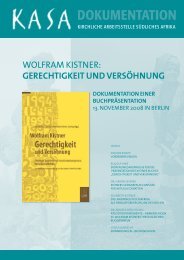“You'll Be Fired if You Refuse†- Human Rights Watch
“You'll Be Fired if You Refuse†- Human Rights Watch
“You'll Be Fired if You Refuse†- Human Rights Watch
Create successful ePaper yourself
Turn your PDF publications into a flip-book with our unique Google optimized e-Paper software.
Annex IV: Wages in Chinese and Other Foreign-Owned<br />
Mines in Zambia as of September 2011<br />
In the copper industry, salaries are generally divided between a “basic pay” and a variety<br />
of allowances that are standard across the industry. For example, miners receive a<br />
“housing allowance” as a percentage of their basic pay: at both the Chinese-owned NFCA<br />
and the Indian-owned KCM, miners receive 30 percent of their monthly basic pay. However,<br />
since KCM pays its underground miners roughly three to four times the basic pay NFCA<br />
does, the housing allowance is likewise more substantial. Other additional monthly<br />
payments given to miners include fixed amounts for transport when a miner lives outside<br />
the company’s bus system; “sh<strong>if</strong>t d<strong>if</strong>ferentials” for working the night sh<strong>if</strong>t; production<br />
bonuses; lunch allowances; and, occasionally, education allowances to cover costs for a<br />
miner’s child. Not all mining companies provide each of these allowances, but, particularly<br />
because of housing allowance disparities, the allowances generally increase the basic pay<br />
d<strong>if</strong>ference when totaling a miner’s gross pay in a non-Chinese versus Chinese-run mine.<br />
Table 1 below shows the low-, middle-, and high-range basic pay salaries at copper<br />
smelting and processing operations in Zambia. As shown, the Chinese companies, CCS<br />
and Sino Metals, generally pay one-third to one-sixth the salaries of their competitors from<br />
other countries—even for identical work. Thus, an acid-plant operator in CCS’s smelter told<br />
<strong>Human</strong> <strong>Rights</strong> <strong>Watch</strong> that his basic pay was 715,008 Kwacha (US$149), whereas an acidplant<br />
operator in KCM’s smelter told <strong>Human</strong> <strong>Rights</strong> <strong>Watch</strong> that he made 3.2 million Kwacha<br />
(US$667). Annex V provides a full breakdown of the salaries at Sino Metals and CCS,<br />
showing also that the majority of employees fall within the lower end of the pay scale.<br />
117 HUMAN RIGHTS WATCH | NOVEMBER 2011




